

TRI-STATE DEFENDER

tsdmemphis.com





tsdmemphis.com

By Jonathan Mattise Associated Press
NASHVILLE — Republican U.S. Sen. Marsha Blackburn announced Wednesday, Aug. 6, that she is entering the open Tennessee governor’s race in 2026, setting up a primary clash with U.S. Rep. John Rose.
home. I’m running to serve as Tennessee’s next governor to ensure Tennessee is America’s conservative leader.”
Rose, who announced his bid for governor in March, likewise has voiced strong support for Trump in a state that Trump has easily won in the past three presidential elections.
CEO for a state at a crossroads, and Rose has had a head start.

POSTMASTER: Send address changes to The Tri-State Defender, 1509 Madison Ave., Memphis, TN, 38104.
GENERAL INFORMATION: Inquiries may be submitted in writing or by calling (901) 523-1818 or by email. TELEPHONE: (901) 523-1818.
The Tri-State Defender (USPS 780-220) is published weekly. The Tri-State Defender 1509 Madison Ave. Memphis, TN, 38104. Second-class postage paid in Memphis, TN. The Tri-State Defender is a member of The National Newspaper Publishers Association and the Tennessee Press Association.
Blackburn’s announcement makes official what had been expected for some time from the ally of President Donald Trump. She had made no secret that she was planning on running for the position.
It sets up a Republican primary clash in August 2026 against Rose who is also a Trump backer. They will be competing to replace GOP Gov. Bill Lee, who is hitting his limit of two consecutive four-year terms in office.
Blackburn became the first woman to represent Tennessee in the U.S. Senate. If elected, she would be the state’s first female governor, as well.
Blackburn won her Senate seat in 2018 by nearly 11 percentage points over Democrat Phil Bredesen, a popular former governor. That victory marked a rightward shift from previous Republican senators who have represented the state. She then won reelection against Democratic state Rep. Gloria Johnson by more than 29 percentage points last November.
Rose, a Cookeville businessman and farmer who can tap into personal wealth, lent his campaign $5 million and raised $1.1 million from donors through June.
Rose’s campaign chairman, Chris Devaney, said Wednesday that Rose and Blackburn have a “mutual respect” and that Rose voted to keep Blackburn in Washington. But Devaney said that Blackburn’s campaign launch sparks a one-year debate over who will be the best
“Senator Blackburn is going to talk a lot about Washington,” Devaney said. “John is going to talk about his record as a CEO, an outsider and a reformer.”
Cito Pellegra of Arlington joins Blackburn and Rose in the GOP primary.
Several Democrats have announced or opened fundraising accounts for the race so far. They include Memphis city councilmember Jerri Green, Memphis community advocate Carnita Atwater, musician Adam “Ditch” Kurtz and Tim Cyr from Gallatin.
The primary election for governor is Aug. 6, 2026.
permission of the Publisher. (901) 523-1818 | 1509 Madison Ave, Memphis, TN 38104
First elected to the U.S. House in 2002, Blackburn aligned with the tea party movement and regularly appeared on Fox News. Before that, the Brentwood resident made a name for herself as a state lawmaker who helped lead the revolt against a proposed Tennessee income tax in the early 2000s.
Digital subscriptions are available online at tsdmemphis.com
In a press release announcing her running for governor, Blackburn said, “In his first six months, President Trump has made historic strides in Making America Great Again, but as he sends power back to the states, he’s going to need strong conservative governors who can bring that revolution


By Jonathan Mattise Associated Press
NASHVILLE — A man convicted of killing his girlfriend and her two young daughters in the 1980s said he was “hurting so bad” while he was given a lethal injection Tuesday in Tennessee, where authorities had refused to deactivate his implanted defibrillator despite claims it might cause unnecessary, painful shocks as the drugs were administered.
Byron Black’s attorney said they will review data kept by the device as part of an autopsy.
Black died at 10:43 a.m., prison officials said. It was about 10 minutes after the execution started and Black talked about being in pain.
Asked for any last words, he replied, “No sir.”
Black looked around the room as the execution started, lifting his head off the gurney multiple times, and could be heard sighing and breathing heavily. All seven media witnesses to the execution agreed he appeared to be in discomfort. Throughout the execution, a spiritual adviser prayed and sang over Black, at one point touching his face.
“Oh, it’s hurting so bad,” Black said, as he lay with his hands and chest restrained to the gurney, a sheet covering up past his lower half, and an IV line in his arm.
“I’m so sorry. Just listen to my voice,” the adviser responded.
Black was executed after a back-andforth in court over whether officials would need to turn off his implantable cardioverter-defibrillator, or ICD. Black, 69, was in a wheelchair, suffering from dementia, brain damage, kidney failure, congestive heart failure and other conditions, his attorneys have said.
The nonprofit Death Penalty Information Center said it’s unaware of
any other cases with similar claims to Black’s about ICDs or pacemakers. Black’s attorneys said they haven’t found a comparable case, either.
Black killed his girlfriend and her 2 daughters
Black was convicted in the 1988 shooting deaths of his girlfriend Angela Clay, 29, and her two daughters, Latoya Clay, 9, and Lakeisha Clay, 6. Prosecutors said he was in a jealous rage when he shot the three at their home. At the time, Black was on work-release while serving time for shooting Clay’s estranged husband.
Clay’s sister said Black will now face a higher power.
“His family is now going through the same thing we went through 37 years ago. I can’t say I’m sorry because we never got an apology,” Linette Bell, Angela Clay’s sister, said in a statement read by a victim’s advocate after the execution.
Black’s lawyer said the execution was shameful.
“Today, the state of Tennessee killed a gentle, kind, fragile, intellectually disabled man in a violation of the laws of our country simply because they could,” attorney Kelley Henry said.
The legal fight over Black’s defibrillator
In mid-July, a trial court judge agreed with Black’s attorneys that officials must have the defibrillator deactivated to avert the risk that it could cause unnecessary pain and prolong the execution. But Tennessee’s Supreme Court overturned that decision Thursday, saying the other judge lacked authority to order the change.
The state disputed that the lethal injection would cause Black’s defibrillator to shock him and said he wouldn’t feel them regardless.
Henry said Black’s defense team will
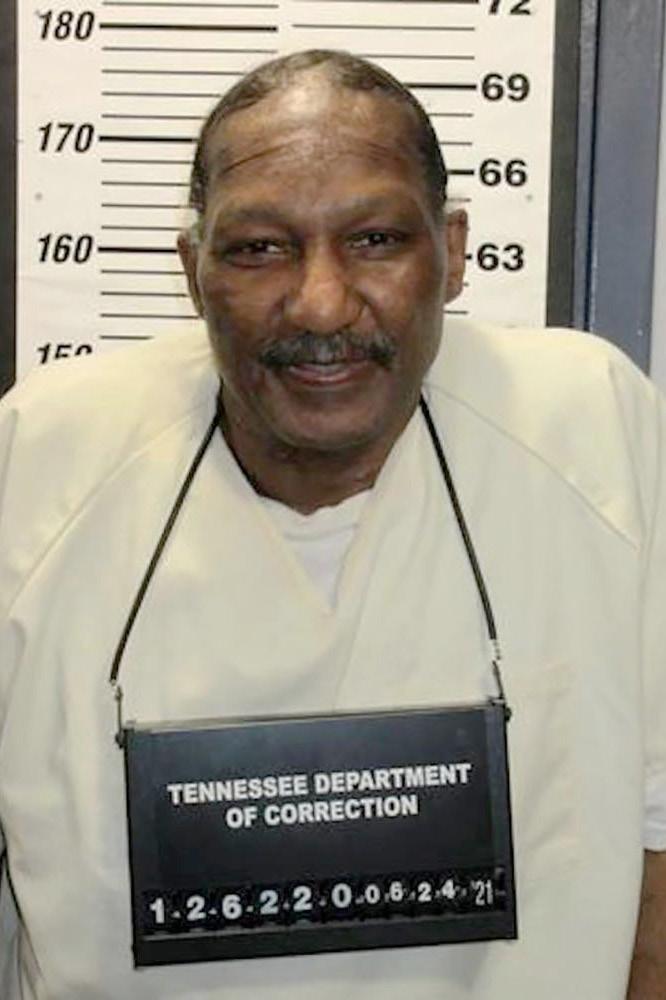
Death row inmate Byron Black was executed by lethal injection at Riverbend Maximum Security Institution in Nashville, Tenn., on Tuesday, Aug. 6, 2025. Black, who was convicted of killing his girlfriend and her two young daughters in the 1980s, said he was “hurting so bad” as the drugs took effect. Authorities declined to deactivate his implanted defibrillator, which his attorneys argued could have caused unnecessary pain. (Courtesy of Tennessee Department of Correction)
carefully review autopsy results, EKG data from Black and information from the defibrillator to determine what exactly happened during the execution. The lethal injection protocol is still being challenged in court.
She said she was especially concerned about his head movement and complaints of pain because the massive dose of pentobarbital used to kill inmates is supposed to rapidly leave them unconscious.
“The fact that he was able to raise his head several times and express pain tells you that the pentobarbital was not
acting the way the state’s experts claim it acts,” Henry said.
Prison officials did not comment on witnesses and Black’s attorney saying he appeared conscious, or his complaints of pain.
Black had an implantable cardioverter-defibrillator, which is a small, battery-powered electronic device that is surgically implanted in the chest. It served as a pacemaker and an emergency defibrillator. Black’s attorneys have said a doctor can send it a deactivation command without surgery.
The legal case also spurred a reminder that most medical professionals consider participation in executions a violation of health care ethics.
In recent years, Black’s legal team has unsuccessfully tried to get a new hearing about an intellectual disability they say he’s exhibited since childhood. People with intellectual disabilities are constitutionally barred from execution. His attorneys have said that if they had delayed a prior attempt to seek his intellectual disability claim, he would have been spared under a 2021 state law. That is because the 2021 law denies a hearing to people on death row who have already filed a similar request and a court has ruled on it “on the merits.”
A judge denied Nashville District Attorney Glenn Funk’s attempt to get Black a new hearing. Funk focused on input from an expert for the state in 2004 who determined back then that Black didn’t meet the criteria for what was then called “mental retardation.” But she concluded that Black met the new law’s criteria for a diagnosis of intellectual disability.
— Jeffrey Collins in Columbia, South Carolina, contributed to this story.

By Fred Redmond AFL-CIO Secretary – Treasurer
President Trump likes to say he is delivering for working people. He promised on the campaign trail that he would protect “Black jobs.” But like so many of his promises, it is an empty one.
In fact, we have been living with the effects of Trump’s policies since he took office in January, and the only thing he has delivered for us is employment uncertainty and financial insecurity. The July jobs report that came out last week is starting to reflect that.
Black unemployment has now surged to more than 7%, nearly double the country’s overall unemployment rate. For both Black Americans as a whole and Black women in particular, unemployment has reached its highest level since 2021 and will likely continue to grow.
These are not just numbers on a
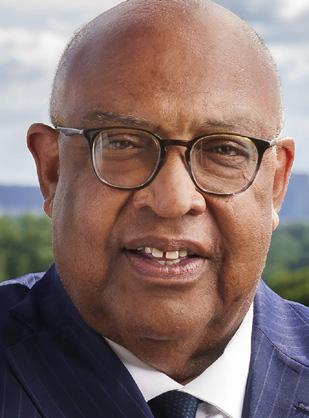
page. They mean our entire communities are suffering. Black workers, who make up a significant part of the federal workforce, have been among those Trump has been firing by the tens of thousands since taking office. Black women are more likely to work in health care and caregiving jobs, and Trump just signed into law what will become the largest health care cut in American history.
Too many of us are familiar with the experience of being “last hired, first fired.” But the data shows it’s actually fact: In good economic times, Black workers are the last brought on board, and when the economy is in a slide, we are the first to be shown the door. We are the canaries in the coal mine for the economy as a whole. So when unem-
ployment in our community has been steadily increasing, it’s a signal that the entire country is heading toward a recession.
Though the recent jobs report shows Black Americans were hit hardest, we aren’t the only ones feeling the pain. Unemployment increased in every demographic group and nearly 1 million people became jobless in July alone. Key industries are bleeding jobs, including manufacturing, government, retail and mining.
So how does Trump respond to this bleak data? He fired the head of the U.S. Bureau of Labor Statistics. He’d rather shoot the messenger than face the reality of a bad report and change his policies to build an economy that works for all of us.
It’s clear that in the labor movement, we’ve got our work cut out for us. We’re going to keep organizing, so that every worker has a voice on the job and a chance to bargain with their co-work-
ers for the pay and job security they deserve. We’re going to keep fighting for fair contracts to make sure Black workers can show up to their jobs every day without facing discrimination and without being exploited by greedy bosses.
And we’ll keep fighting to hold the Trump administration accountable when it pushes anti-worker, anti-Black policies. Trump’s economy may be working for his billionaire buddies, but for the rest of us, it’s a disaster. It’s time to take our country back to ensure Black workers — and all workers — finally get the fair shot at getting ahead that we deserve.
Fred Redmond, the highest-ranking African American labor official in history, is the Secretary-Treasurer of the AFLCIO, the nation’s largest labor federation representing 63 unions and nearly 15 million workers.


Book review
By Terri Schlichenmeyer
Keep your head down.
Stay steady, mind your business, and don’t compare yourself to others. You are where you are for a reason, don’t lose sight of it. There’s a prize at the end, and endurance is the only way to get it. You have a job to do and, as in the new memoir “Between the Devil and the Deep Blue Sea: A Veteran’s Memoir” by Khadijah Queen recalls, you’ll do it until you can’t.
Khadijah Queen hated Inkster, Michigan.
She had begged to stay in L.A. but her mother ignored her pleas and moved the family to Inkster to take care of the at-risk children of Queen’s addicted eldest sister. Not old enough to stay in “Cali” by herself but old enough to work and contribute to the household, Queen rushed to sign up for classes at a local Michigan college because she knew education was the only way to escape the situations that had her family in a stranglehold. Alcoholism, drug abuse, no money — problems came like storms and when those problems forced her to drop her classes, she decided to join the Navy. A few years of service, she knew, and her college education would be free.
Happily, boot camp wasn’t so bad. There were a handful of Black recruits and personnel who held Queen up when she felt sad, and they gave her hope. She learned in Navy boot camp that she was a leader, but she wasn’t ful-
ly ready for it. She wanted to serve on a submarine and once there, she tried to just do her job but her white male shipmates made it difficult.
She endured their hazing and sexual harassment. She endured their racism and juvenile jokes. She endured a noose left laying on her study manuals. Less than six months aboard, she says, “my anger had become a living thing, and even though I didn’t want it, I kept that anger close. It leapt ahead of me when it had to.”
Prepare to be stunned.
From the first few pages to this book’s roaring end, “Between the Devil and the Deep Blue Sea” grabs readers by the throat and doesn’t let go. You plainly see author Queen’s need to get away from near-poverty; it paces like a lion in a small cage. You’ll cringe at her maturity that doesn’t quite go far enough because you’ve probably been there, too. When she’s about to get in trouble for speaking her mind or because she’s impatient, you’ll squirm, knowing what’s coming. Authentic language puts you in uniform. Tragedy will hurt your heart. So will some of the people in this book when you learn what happens to them, but the story would be lesser without the rich presence of each of them and without Queen’s no-nonsense-ness, her boiling impatience and her profanity-laced honesty.
Veterans may have some things to say about this one-of-a-kind book, as will feminists, and neither of them, nor you, should miss it. Start “Between the Devil and the Deep Blue Sea,” and it’ll keep your head down good.



By Dalisia Ballinger TSD Contributing Writer
For some Shelby County residents leaving prison, the journey toward a second chance will now begin at a single-story home on Mississippi Boulevard. County leaders and community advocates officially opened Redemption House, the first transitional home operated by Shelby County Government for individuals reentering society after incarceration. Preparation for the project began a year ago, and the first residents moved in August 4, 2025.
The home can accommodate up to three men at a time, with each resident agreeing to a stay of at least 90 days and no more than 120 days. During that time, an outreach coordinator works closely with them to help secure permanent housing by connecting them with community partners who serve justice-involved individuals.
“This is the first time in Shelby County’s history that we’ve opened a transitional house,” said Mayor Lee Harris. “It’s not just a home, it’s an investment in public safety, in rehabilitation and in the future of our community.”
Residents are referred through the Shelby County Division of Corrections’ therapeutic community dormitory, where they must enroll in both hard skills and soft skills training and meet predetermined community standards. Interested individuals may request acceptance into the program and undergo an assessment. If they meet the criteria and space is available, they are admitted. While living at Redemption House, residents are required to deposit 25% of their earnings into a savings account, which they can later use to secure permanent housing.
The house’s name was inspired by civil rights leader the Rev. Jesse Jackson Jr., who, during a 2022 visit to the Shelby County Office of Re-Entry, called it
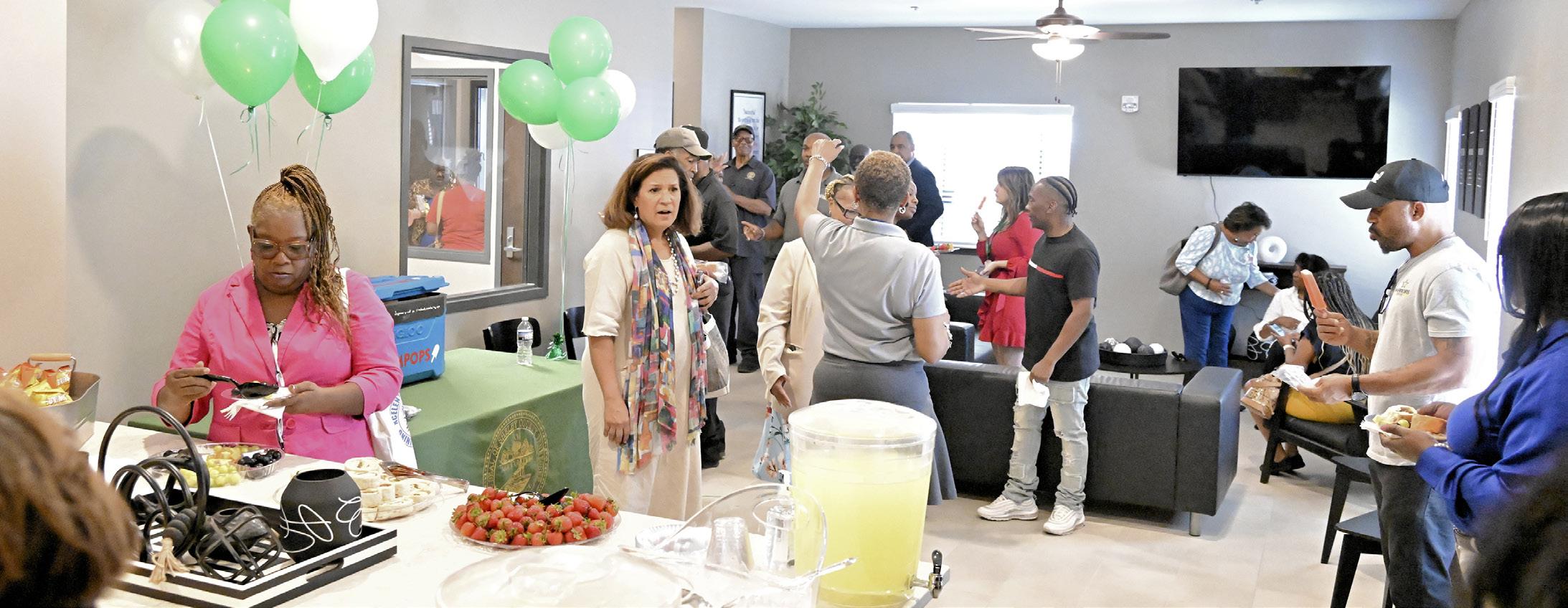
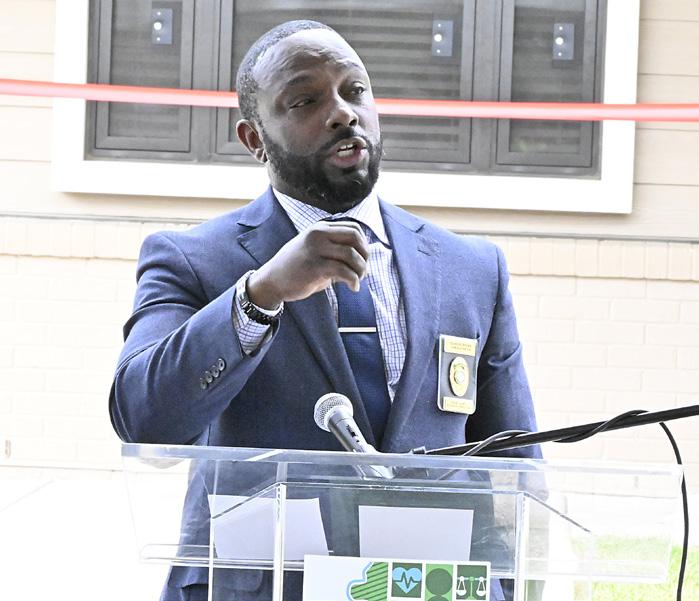
team effort, and I’m proud the Board of Commissioners was part of it.”
Housing instability is a well-documented barrier to successful reintegration. Research from the National Institutes of Health shows that individuals who experience homelessness or frequent moves after release from prison are more likely to reoffend.
Anthony Alexander, director of the Shelby County Division of Corrections, called the project a “significant investment in second chances,” noting the structured support residents will receive to help them succeed.
cycle of incarceration,” Brown said.
Although there are no immediate plans to expand to additional homes, officials say the ultimate goal is to remove one of the largest barriers to successful reentry.
“If we can provide stable housing to recently released individuals who have done the work to change the course of their lives,” Brown said. “We can create a safer Shelby County and develop a stronger community.”
“a house of redemption” after learning about its mission to reduce recidivism.
Shelby County Commissioner Mickell Lowery, who supported the project, stressed the importance of collaboration. “No single entity can reduce recidivism alone,” he said. “This is a
The Shelby County Division of Public Works oversaw construction of the home. Director Cliff Norville said the project was about “creating a safe, supportive space that benefits the entire community.”
DeAndre Brown, director of the Office of Re-Entry, said the home represents the next step in a comprehensive re-entry strategy. “With stable, affordable housing, we can open more pathways to opportunity and break the
Supporters believe Redemption House can be a turning point — transforming the lives of those reentering society while strengthening the entire community through safer streets, reduced recidivism and renewed hope.
ON THE COVER: Shelby County Mayor Lee Harris, second from left, joins other local officials in unveiling the placard for Redemption House, Monday, Aug. 12, 2025, in Memphis. The newly opened facility is the first transitional home operated by Shelby County Government for residents reentering society after incarceration.

George W. Tillman Jr. opens up about his career as a filmmaker and his secret to overcoming as he prepares for “The Lucky Eleven” screening in Memphis
By Candace Gray TSD Contributing Writer
A little more than a year ago, local, award-winning filmmaker George W. Tillman Jr. found himself fighting for his life and his livelihood. A scary bout with Legionnaire’s Disease left him hospitalized while his brother ransacked his home and stole his most prized possessions: his movie scripts.
However, just days before his 70th birthday, Tillman sat down with The Tri-State Defender to share his story of perseverance, purpose, hope and new beginnings ahead of the premiere of his latest film, “The Lucky Eleven.”
“The Lucky Eleven” is a documentary that explores the collective path of 11 African-American men from Memphis to the NFL and beyond. Written, produced and directed by Tillman, work on the film began in 2009 and is finally complete. The final cut will premiere at Malco Theater Studio on the Square, 2105 Court Ave., Thursday, Aug. 14, 6 p.m. Tickets can be purchased here.
“It took us a long time to make this film,” said Tillman. “Several of the men passed away during the course of filming, but this story is so important, it had to be told.”
And who better to tell it than native-Memphian and fellow football teammate George W. Tillman Jr.? A star quarterback at Messick High, Tillman had plans to attend the University of Memphis, but he says they weren’t ready for a Black quarterback.
“This was the early 70s, during the
height of the Civil Rights Movement.
Dr. King had just been killed. Tensions were high,” said Tillman.
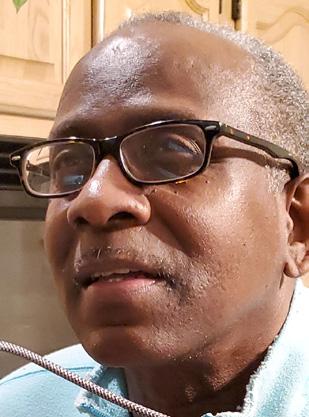
So, with help from famed businessman and Fisk University alum A. Maceo Walker, Tillman went to Fisk in Nashville, where the “lucky eleven” were enrolled and experiencing much success after other predominately white schools didn’t want to recruit these championship players.
“Coach Samuel Whitmon came down and got all 11 from Southside High and took them back to Nashville,” Tillman said.
These athletes would go on to graduate from Fisk and enter the NFL. One of them, John Jones, who ironically wore number 11, became the fourth African-American quarterback in the NFL.
Tillman took the responsibility upon himself to help tell this and other Black stories, to encourage and motivate the younger generations. His filmography, including “Son of Shaft,” “Midnight Train to Georgia,” “The Birth of Soul Music,” “Men of Honor,” “The Hate U Give,” “Notorious” and more all focus exclusively on Black stories with rich historical context.
“Memphis has so much history — did anyone know that John Jones came from right here in Memphis, Tennessee? A lot of these kids look for hope and to become great and famous. And
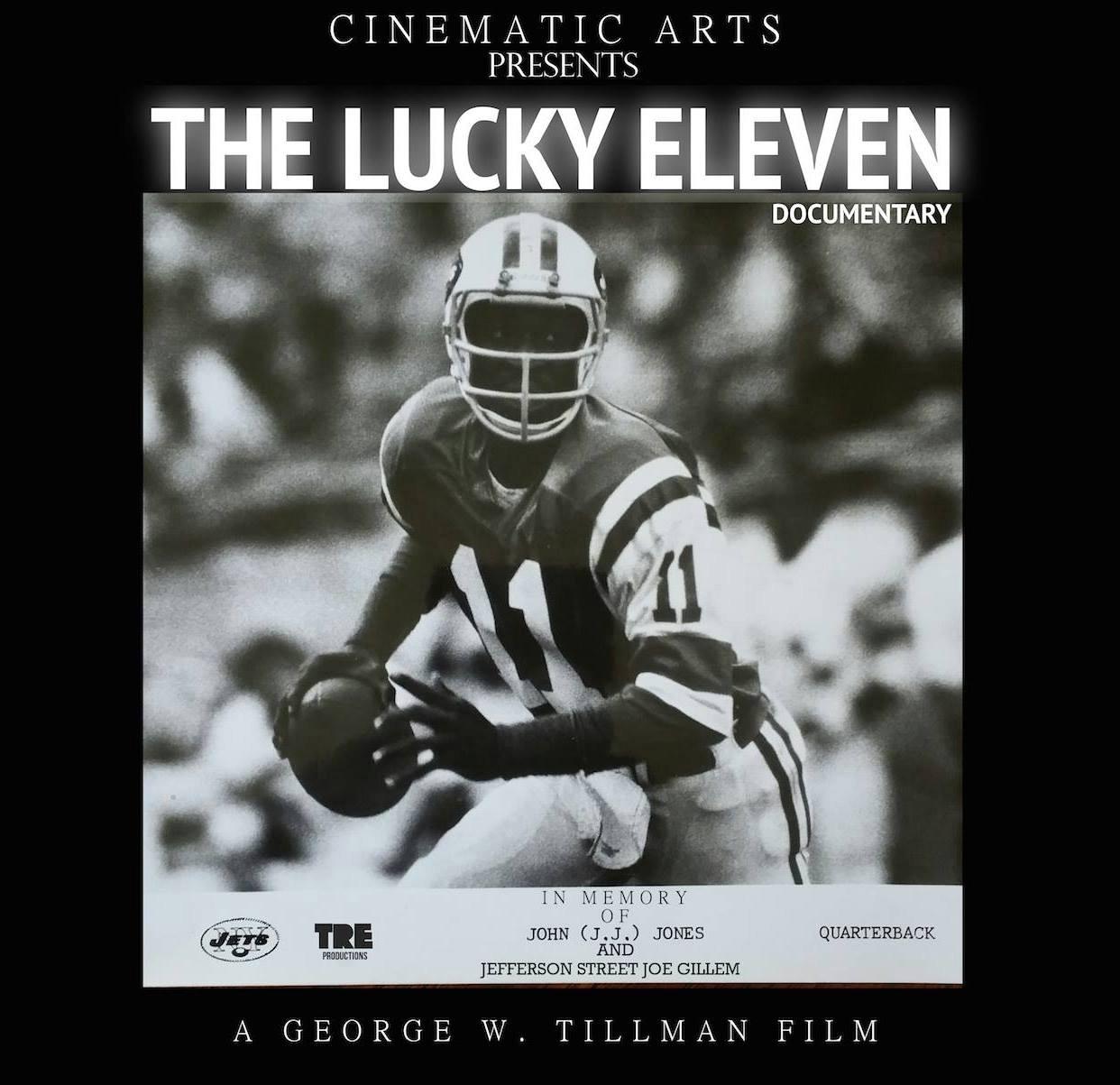
I’ve helped some of them do just that,” said Tillman.
“I’ve seen good and bad days. Now it’s about supporting our community and teaching the kids what it means to persevere, endure and not give up. I refuse to give up,” he said.
Tillman is no stranger to tragedy. As a senior in college, he suffered an injury that halted his NFL aspirations, but he went on to graduate and pursue other interests. Though he’s had a 50+ year film career, he feels he still hasn’t had his big break, but he keeps making films. And most recently, after his brother burglarized his home, stole his scripts and film footage, Tillman finds himself gradually putting the pieces back together.
“To be a champion, to be the best, you have to work hard and make sacrifices. That was embedded in me as a championship winning-athlete. When you get knocked down, you gotta get back up,” Tillman said.
A message for the people.
“That’s what keeps me going,” he said. “Knowing I’ve got this community that’s watching — ’cause they’re watch-
ing.” As are his son and two grandsons who live in Canada.
Tillman also credits his spiritual, prayerful upbringing and familial support as part of the reason for his success and drive.
“I come from a praying family — my mother and father, all my brothers and sisters. We were in church. My sister sent me a card one time that said ‘When you shine the light on others, the light shines even brighter on you.’ And I believe that,” Tillman said.
He looks forward to shining a light on “The Lucky Eleven” for the whole world to eventually see. But for now he’ll settle for a sold-out crowd Thursday at Studio on the Square, which will help fund his Fisk University Scholarship Fund.
Following Thursday’s event, Tillman plans to also screen the film in Nashville, Atlanta, Houston, New York and Washington, D.C. And one day, he wants to make this story a feature film. But on August 17, we in Memphis will wish George W. Tillman Jr. a Happy 70th Birthday!

By Lee Eric Smith TSD Contributing Writer
Memphis is about to strut its stuff.
The inaugural Memphis Urban Fashion Week (MUFW) kicked off Tuesday and runs through Friday, Aug. 16, bringing together designers, dancers, stylists and entrepreneurs for five days of runway shows, panels, parties and performances designed to showcase the Bluff City as a rising fashion capital.
Founded by Memphis native and nationally acclaimed designer Prep Curry, in partnership with FUBU co-founder J. Alexander Martin, MUFW aims to shine a spotlight on the city’s creative talent while fostering business opportunities in the local fashion ecosystem.
“Memphis is a city of soul, creativity and resilience, and fashion is one of the ways we express that,” Curry said. “Memphis Urban Fashion Week is about more than clothes; it’s about confidence, culture and community pride.”
Curry knows something about making statements in fashion. In 2016, he left Memphis for California, where his brand gained national traction. Among his career milestones: becoming the first Black man to launch a fashion line with Banana Republic. Despite his success, Curry said he never lost sight of his hometown.
“One of my core goals has always been to give back to my hometown and create opportunities for Memphis to shine on a larger stage,” he said. That vision inspired a Saddle Creek fashion show in 2023 — and now, MUFW.
The MUFW lineup blends high fashion with Memphis flavor:
• Tuesday, Aug. 12: Fitness & Well-
“Memphis is a city of soul, creativity and resilience, and fashion is one of the ways we express that. Memphis Urban Fashion Week is about more than clothes; it’s about confidence, culture and community pride.”
—Prep Curry
ness Bootcamp + Pop-Up at Trayne Fit — a mix of movement, wellness vendors and athleisure fashion drops.
• Wednesday, Aug. 13: Fashion Entrepreneurs’ Panel at The New Daisy Theatre (7–9 p.m.) — Memphis-based designers and brand builders share insights on the business of fashion.
• Friday, Aug. 15: Adult Prom at Grindhouse Dance Studio (7–10 p.m.) — a night of glamour and self-expression.
• Saturday, Aug. 16: MUFW x FUBU Fashion Show at LeMoyne-Owen College (7–10 p.m.) — the grand finale featuring FUBU and top Memphis designers, with a portion of proceeds benefiting St. Jude Children’s Research Hospital.
Featured brands and designers include , South of Mane Custom Apparel, Ashton Hall, Peer Pressure Apparel Co., Immoral Ink Clothing, FUBU, and Curry’s own label.
Building a fashion future
In addition to Curry, a talented committee powers the week from every angle:
• Cynthia Daniels, one of Mem-


phis’ most recognized event producers, oversees vendor registration, bringing her track record of high-profile, community-centered events to the MUFW experience.
• Chris Joy, a multifaceted creative behind Beard of All Trades, manages media marketing and the official website, ensuring MUFW’s digital presence matches its street-level buzz.
• Patrick Covington, of Patrick C Photography, directs photography and media, capturing the week’s style and energy through a Memphis lens.
• Tyesha Golden-Rhodes wears multiple hats as volunteer coordinator, designer and model coordinator — creative vision with flawless execution on the runway.
• Adrienne Jones, a sought-after stylist and founder of Adrienne J. Small LLC leads the hair team, crafting sig-
nature looks that help bring designers’ visions to life.
Together, this diverse team blends expertise in fashion, media, beauty and event production to ensure Memphis Urban Fashion Week debuts as a seamless, high-impact celebration of the city’s style and spirit.
Curry envisions the show becoming a staple on the national fashion calendar, comparable in scale to New York and Los Angeles fashion weeks — but with Memphis roots intact.
“I want people to come here for MUFW the way they travel to New York or Paris for fashion,” Curry said. “We have the talent. We have the culture. Now we have the platform.”
For tickets and updates, visit www. mufw.net.